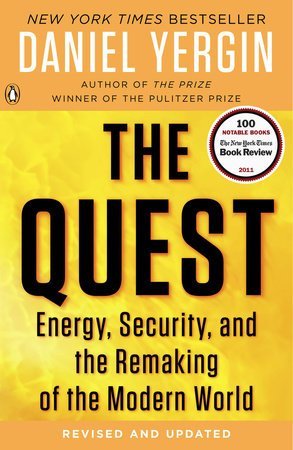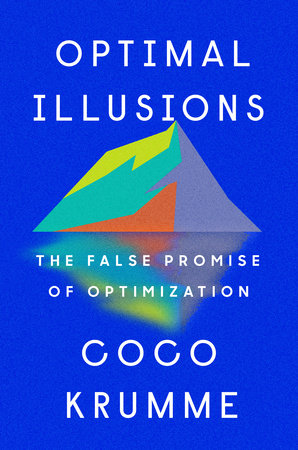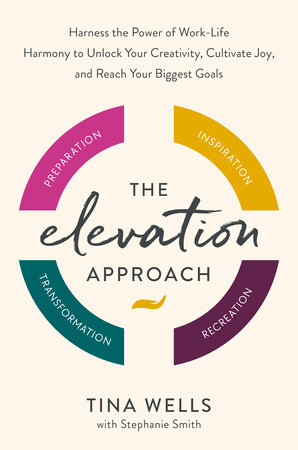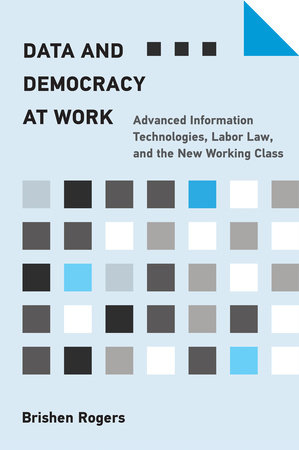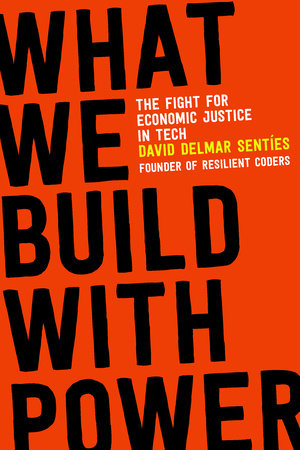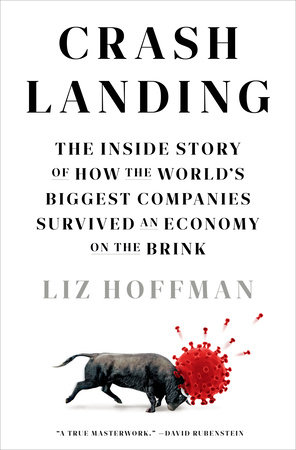Quick Summary
One Sentence Summary
“The Quest” by Daniel Yergin delves into the complexities of global energy politics, exploring the intricate balance between energy, security, and environmental challenges.
Big Idea
The central theme of the book is the global quest for energy security and sustainability, highlighting how geopolitical strategies, technological advancements, and environmental concerns shape the future of energy.
Five Key Ideas
- Energy and Geopolitics: The book explores how energy resources have historically influenced geopolitical dynamics, shaping national policies and international relationships.
- The Evolution of Energy Sources: Yergin examines the shift from traditional fossil fuels to renewable energy sources, discussing the technological innovations driving this change.
- Environmental Impact: The book addresses the environmental consequences of energy consumption, emphasizing the need for sustainable practices.
- Economic Implications: The impact of energy on global economies is analyzed, highlighting how energy security is crucial for economic stability.
- The Future of Energy: Predictions about future energy trends and potential solutions for achieving a balance between energy needs, security, and environmental preservation.
Actionable Advice
Reflect on personal energy consumption and consider adopting more sustainable practices. Stay informed about global energy policies and advancements in renewable energy technologies.
About the Author
Daniel Yergin is a respected authority on energy, international politics, and economics. He is known for his previous work, “The Prize,” which delves into the history of oil.
Read Next
- “The Prize” by Daniel Yergin, for a historical perspective on oil.
- “Sustainable Energy – Without the Hot Air” by David J.C. MacKay, for insights into sustainable energy practices.
- “Energy: A Human History” by Richard Rhodes, for a broader historical view of energy development.
In Depth
Energy and Geopolitics
The interplay between energy resources and geopolitics is a central theme in Daniel Yergin’s “The Quest”. The book paints a vivid picture of how nations have maneuvered and strategized around energy resources, particularly oil and gas, influencing global politics and shaping alliances.
A detailed example from the book is the discussion about Russia’s role as a major energy supplier, especially in natural gas. Yergin describes how Russia’s vast reserves have not only bolstered its economy but also given it significant leverage in international relations, particularly with Europe. He explains how Russia’s control over gas pipelines has been a point of contention, affecting relationships with neighboring countries and the European Union. This scenario perfectly encapsulates how energy resources can be wielded as tools of geopolitical influence.
Yergin highlights the complexity of these relationships with a striking quote:
“Energy is at the heart of the global economy and in many respects the control of energy is the control of economic power.” – Daniel Yergin, “The Quest”
This quote underscores the importance of energy not just as a commodity, but as a pivotal element in the power dynamics between nations. Countries rich in energy resources can use them as bargaining chips, impacting everything from trade agreements to diplomatic relations.
The book also delves into the history of the Middle East and its oil reserves. Yergin recounts how the discovery of oil transformed the geopolitical landscape of the region. He illustrates how countries like Saudi Arabia rose to prominence and how their oil wealth impacted their international relations, particularly with the United States and other Western nations. This historical perspective shows the long-standing link between energy resources and geopolitics.
Furthermore, Yergin discusses the strategic moves made by the United States in securing energy resources. He describes the American military presence in the Middle East and the political maneuvering around oil, demonstrating how energy considerations often dictate foreign policy.
“The Quest” also touches on the energy challenges faced by emerging economies like China and India. Their growing energy demands have significant geopolitical implications, influencing global markets and international relations. Yergin explains how these nations’ quests for energy security are reshaping the global energy landscape.
In summary, the book intricately details how energy resources, particularly oil and gas, have been at the center of geopolitical strategies and conflicts. From the power plays of Russia and the Middle East to the energy ambitions of rising economies, Yergin paints a comprehensive picture of the profound impact of energy on global politics.
The Evolution of Energy Sources
Daniel Yergin’s “The Quest” dives into the significant shift from traditional fossil fuels to renewable energy sources. This transition, driven by technological innovation, is reshaping the energy landscape.
A key example in the book is the rise of solar power. Yergin traces its journey from an expensive and inefficient technology to a more affordable and viable energy source. He discusses the advancements in photovoltaic cells and how economies of scale have reduced costs.
Yergin uses a powerful quote to highlight the essence of this transformation:
“The Stone Age did not end for lack of stone, and the Oil Age will end long before the world runs out of oil.” – Daniel Yergin, “The Quest”
This quote emphasizes the idea that energy transitions are not just about resource availability but also about technological innovation and changing societal needs.
Yergin also discusses the role of wind energy, highlighting its rapid growth, especially in countries like Denmark and Germany. He illustrates how government policies, along with technological improvements, have propelled wind energy to become a significant part of the energy mix.
Electric vehicles (EVs) represent another significant shift discussed in the book. Yergin examines the evolution of EVs, their impact on oil demand, and how they are influencing the strategies of major automotive companies and oil producers alike.
Moreover, Yergin touches on the challenges of transitioning to renewables. He discusses issues like intermittency, the need for energy storage solutions, and the importance of grid modernization to accommodate these new energy sources.
In essence, “The Quest” captures the dynamic and transformative journey from traditional fossil fuels towards an era increasingly dominated by renewable energy sources, driven by innovation, policy, and changing global needs.
Environmental Impact
In “The Quest,” Daniel Yergin delves into the environmental consequences of energy consumption. He underscores the urgent need for sustainable practices to address climate change and environmental degradation.
A compelling example from the book is the discussion on carbon emissions. Yergin highlights how the burning of fossil fuels has led to a significant increase in greenhouse gases, exacerbating global warming. He uses a powerful quote to emphasize the gravity of this issue:
“The world’s climate does not adhere to political boundaries; it’s a shared responsibility that goes beyond national borders.” – Daniel Yergin, “The Quest”
This quote captures the essence of environmental impact as a global issue, not confined to any one nation or region. It calls for collective action and responsibility.
Yergin also examines the environmental impact of oil spills, detailing incidents like the Deepwater Horizon disaster. He describes the extensive damage to marine life and coastal ecosystems, highlighting the long-term environmental costs of such events.
Additionally, Yergin discusses the challenges of balancing energy needs with environmental concerns. He talks about the controversial topic of hydraulic fracturing (fracking) and its potential impact on water resources and seismic activity.
The book also touches on the rise of environmental movements and the increasing public awareness and activism around climate change. Yergin describes how this has influenced government policies and corporate strategies, pushing towards cleaner energy sources.
Overall, “The Quest” paints a vivid picture of the environmental challenges posed by our energy consumption, urging a more sustainable and responsible approach to energy use.
Economic Implications
Daniel Yergin’s “The Quest” closely examines how energy security is vital for economic stability. The book underscores that energy is not just a commodity but a crucial driver of economic growth and development.
One detailed example in the book is the oil price shocks of the 1970s. Yergin recounts how the Arab oil embargo and the Iranian Revolution led to soaring oil prices, triggering global economic turmoil. He explains how this impacted industries, led to inflation, and caused economic downturns in many countries.
Yergin encapsulates the importance of energy in economics with this quote:
“Energy prices don’t just affect the energy industry; they’re a pivot for the world economy.” – Daniel Yergin, “The Quest”
This quote highlights the extensive ripple effects of energy prices on the global economy, affecting everything from production costs to consumer prices.
Yergin also delves into the concept of “energy poverty,” describing how lack of access to energy hinders economic development in many parts of the world. He emphasizes that energy is a cornerstone for improving living standards and driving economic growth.
Furthermore, the book discusses the economic implications of transitioning to renewable energy. Yergin talks about the investments needed, the potential for job creation in new energy sectors, and the economic challenges of moving away from fossil fuel-dependent industries.
In essence, “The Quest” brings to light the profound economic implications of energy, illustrating how it is deeply intertwined with global economic stability and development.
The Future of Energy
In “The Quest,” Daniel Yergin explores the future trajectories of the energy sector, considering the delicate balance between fulfilling energy needs, ensuring security, and protecting the environment.
A notable example from the book is the concept of the “energy mix” of the future. Yergin details how this mix is likely to evolve, incorporating a diverse range of sources from oil and gas to renewables like wind and solar. He emphasizes the ongoing role of natural gas as a ‘bridge fuel’ and the increasing relevance of renewable energy.
Yergin provides insight into the future with this quote:
“The future of energy is not just about resources or technology, it’s about innovation, adaptability, and how societies navigate change.” – Daniel Yergin, “The Quest”
This quote underscores that the future of energy is multifaceted, influenced by technological advancements, policy decisions, and societal shifts.
Yergin also discusses the potential of emerging technologies like carbon capture and storage (CCS) and their role in mitigating climate change. He illustrates the challenges and opportunities these technologies present in shaping a sustainable energy future.
Furthermore, the book touches on the geopolitical implications of future energy trends. Yergin explores how shifts in energy production and consumption could alter global power dynamics, with countries rich in renewables potentially gaining influence.
In conclusion, “The Quest” provides a comprehensive look at the possible pathways for the future of energy, underlining the complexities and interdependencies of this ever-evolving sector.
Actionable Advice
- Reduce Personal Energy Consumption: Turn off lights and appliances when not in use. Opt for energy-efficient products.
- Adopt Renewable Energy: Install solar panels or switch to a green energy provider if possible.
- Educate Yourself: Stay informed about energy policies and technological advancements in the energy sector.
- Advocate for Change: Support policies and initiatives that promote renewable energy and sustainability.
- Opt for Public Transport: Whenever feasible, use public transportation, carpool, or consider electric or hybrid vehicles.
- Practice Energy Efficiency at Home: Insulate your home and use smart thermostats to reduce energy waste.
- Support Sustainable Businesses: Choose products and services from companies committed to sustainable practices.
- Recycle and Reuse: Minimize waste by recycling and reusing items, reducing the energy needed for production.
- Conserve Water: Use water-saving fixtures and avoid wasting water, as water treatment consumes energy.
- Spread Awareness: Share information about energy conservation and environmental protection with your community.
About the Author
Daniel Yergin is an American author, speaker, and economic researcher, renowned for his expertise in energy policy and international politics. Born on February 6, 1947, in Los Angeles, California, Yergin holds a Ph.D. in International Relations from Cambridge University. He co-founded Cambridge Energy Research Associates, which became a leading consulting firm in the energy sector. Yergin is the Vice Chairman of IHS Markit, a global information company.
His Pulitzer Prize-winning book, “The Prize: The Epic Quest for Oil, Money, and Power,” is acclaimed for its comprehensive analysis of the global oil industry. In his follow-up, “The Quest: Energy, Security, and the Remaking of the Modern World,” Yergin delves deeper into energy issues, technology, and climate change. His work often reflects his belief in the intricate relationship between energy policies, economic development, and geopolitics.
Yergin is recognized as an authority on energy matters, advising governments and businesses. His insights are sought after for understanding complex energy dynamics and their global impact. Through his writing and consulting, Yergin contributes significantly to discussions on energy sustainability and the future of global energy systems.
Read These Next
You might like these similar books
- “The Prize: The Epic Quest for Oil, Money, and Power” by Daniel Yergin
- “Collapse: How Societies Choose to Fail or Succeed” by Jared Diamond
- “Hot, Flat, and Crowded: Why We Need a Green Revolution – and How It Can Renew America” by Thomas L. Friedman
- “The Third Industrial Revolution: How Lateral Power Is Transforming Energy, the Economy, and the World” by Jeremy Rifkin
- “Sustainable Energy – Without the Hot Air” by David J.C. MacKay
FAQ
Q: What is “The Quest” by Daniel Yergin about?
A: The book explores the global energy sector, covering topics like the history of energy, environmental challenges, economic implications, and future energy trends.
Q: Is “The Quest” suitable for readers without a background in energy?
A: Yes, it’s written for a broad audience, offering insights in a clear and accessible manner.
Q: How long is “The Quest”?
A: The book is quite extensive, with a length of over 800 pages.
Q: Does “The Quest” discuss renewable energy?
A: Yes, it covers the evolution and impact of renewable energy sources like solar and wind power.
Q: Is “The Quest” biased towards any particular energy source?
A: Daniel Yergin presents a balanced view, examining the pros and cons of various energy sources.
Q: Does the book provide any actionable advice?
A: While it’s more informative than prescriptive, readers can glean insights on energy sustainability and personal actions they can take.
Q: When was “The Quest” published?
A: It was published in 2011.

